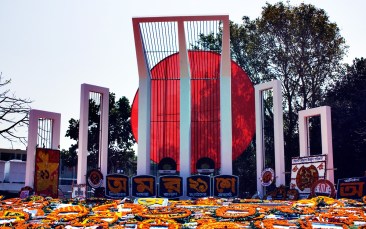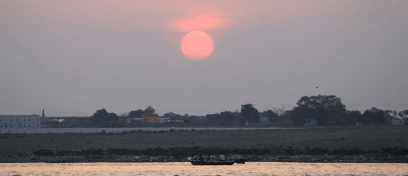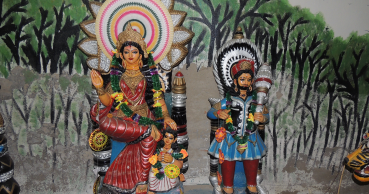This is a translation of a Bengali-language post. However this post does not make literal or word-for-word translation and tries to capture the essence of the post. Some portions from the original Bengali post have been changed or omitted to make things relevant for the non-Bengali speakers.
You may be aware that a Wiki-event named “Wikimedia Wikimeet India 2021” will be organised on 19 – 21 February 2021. This will be an online Wiki-event, and during the journey of this event we would like to work with a few (not sure “new” or not) ideas and implementation plans. Initially when Bodhisattwa Mandal, Nitesh Gill and I, after having conversations with Tanveer Hasan, thought of conducting this event, the first and foremost idea that triggered us was an opportunity of learning new things and applying our learning in the activities. We have to wait to find out how the event goes, however we are pretty sure that we’ll collectively learn many new things.

You have noted that the event is scheduled on 19 – 21 February. Actually there was a reason to select these dates. 21 February is observed as International Mother Language Day. This day is not only for Bengali and Bengali people, but this is a day of observation for everyone — who love their Mother Language. A Mother Language is not a burden, but it is more like a part of one’s mind and body, something that is very close to one’s soul. On different Wikimedia projects such as Wikipedia, Wikisource, Wiktionary etc in different languages many Wikimedians are relentlessly working – 21 February is their day as well. 21 February is everyone’s Mother Language day. These were some of the thoughts we had while selecting the dates of the event. We expect that in that day’s schedule we’ll particularly focus on topics related to language, language preservation etc.
As my Mother Tongue is Bengali, I wrote the original post in Bengali (which I am trying to translate here). This has been a long time I have been associated with the Wikimedia movement. In the upcoming April 2021, I’ll complete 10 years in the movement. 10 years ago, I was in a world which was not really connected or related to this Wiki-world. Sometimes, when I am in vacant or pensive mood, I look back and think of these years — the journey. Like many other Wikimedians I also searched something on Google, found Wikipedia as one of the top suggestions, read the article, made a minor fix… a few days later possibly made another similar minor edit, gradually I started making more edits — that’s how I became a Wikimedian — and now almost 10 years have passed. After so many years’ of work, I feel a different bondage or connection with English Wikipedia. It would not be possible for me to write about my work and journey on English Wikipedia in this post as that will be out of context. However you may clearly observe that a major portion of my Wiki-contribution is or was on English Wikipedia.

Over the years when I was working as a volunteer, I saw several Wikimedians doing incredible work around their Mother Tongue. They are working relentlessly and selflessly. Possibly their primary objective is to improve (free) knowledge content on the world wide web in their own language. These people are pathfinders. Someone worked in Bengali on the world wide web yesterday. That’s reason today I am getting something to read in Bengali on the internet. If tomorrow I get to read more content in Bengali, it’ll be possible only because of the hard work done by some people today. However, please think for a while and tell me, what will happen if there is no one today to do this work for any particular language? Or if the work is not done for any reason? Would not be the language lagging a little behind? And what will happen to a language if this lagging becomes a continuous issue?
I have seen wonderful works of several Wikimedians in different languages such as Kannada, Tamil, Telugu, Punjabi, or Hebrew or my Mother Tongue Bengali. In this particular post I would not mention too many persons’ name or their excellent work, else this post would be too long. I also feel that I don’t have the capability to write someone else’s “Mother Language Story”. After writing this post I wish to go to some people and ask them— “Hey, see I have written a brief Mother Language story. Why don’t you share your own experiences, your Mother Language Story as well?” I would just very briefly talk about আফতাবুজ্জামান (Aftabauzzaman or Aftab), a Bengali Wikipedia administrator. He is working on Bengali language on Wikipedia and several other platforms and websites. In the last 2 years or so I have increased work related to Bengali language on Wikimedia. Earlier I was working on Bengali labels on Wikidata, now for the last few months I am working on Bengali language pronunciation on Wikimedia Commons. I have spent a lot of time to work on this project on Wikimedia Commons and I wish continue it further. If you see my Google or Facebook account, or my mobile phone, you’ll find that the interface is in Bengali. If I am consciously focusing more on Bengali-language today in my Wiki-work, I feel Aftab’s incredible Bengali-work, which I witnessed over the years, was a main influence on my sub-conscious mind.
Mother Language and an Observation

For the last couple of years while working on Bengali-language on Wikimedia, I have observed one thing. This is related to what I earlier told in this post— “A Mother Language is not a burden, but it is more like a part of one’s body and mind, something that is very close to one’s soul.” What do you call “internet” in your language? What is the substitute of “WiFi” in your language? Do you have a word for “SIM card”? Or does your language have a word for RAM (Random Access Memory)? In Bengali and in possibly in other languages also there are many words which we use in our daily life, but we do not have a term in our language. We call “OTP” as “OTP”, or “laptop” as “laptop” only in Bengali (possibly in other languages also). What is the reason? I feel this not only shows a lack of a word/term in a language, but it possibly shows lack of original thoughts and ideas as well. Possibly we are having less original or innovative ideas. Whether it is internet, RAM, SIM card, or laptop — we have not thought of these or invented these. These came from outside, and we just borrowed the idea, or just purchased the product. There was no imagination or thought behind it, and we did not care to give it a name also, as it was not needed. On the other hand, possibly you can’t find a single thing that we invented, where we put our thoughts and that does not have a local-language term. Think of Bhangda, Lassi, Rakhi, Diwali, Kangan, Gopuram, Kurta, Rangoli, Masala, any spice, any dress or anything — we never failed to name something in our Mother Tongue when we were the thinkers, where we conceptualised something, and we were not only borrower of an idea. We do not need to be language-experts to have a term in our language. So, this is not only an issue of not having a few terms in a particular language, the real problem is possibly larger. Isn’t it?
In the upcoming Wikimeet, during the preparation or even after the event we wish to work on the language-aspect. This was my short “Mother Language story”, and we would love to hear your story of your language-exploration.

Can you help us translate this article?
In order for this article to reach as many people as possible we would like your help. Can you translate this article to get the message out?
Start translation